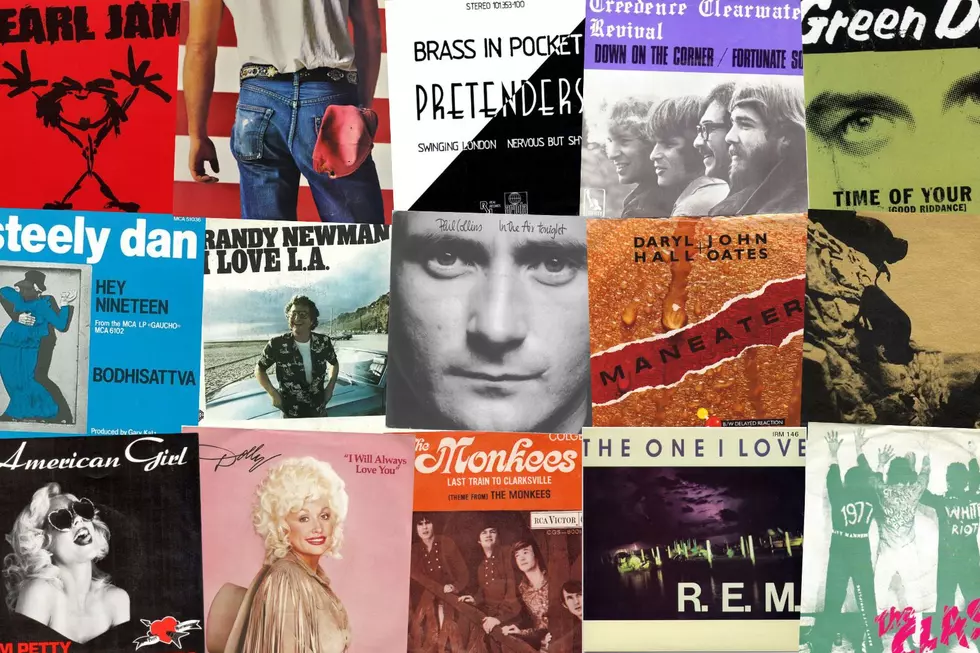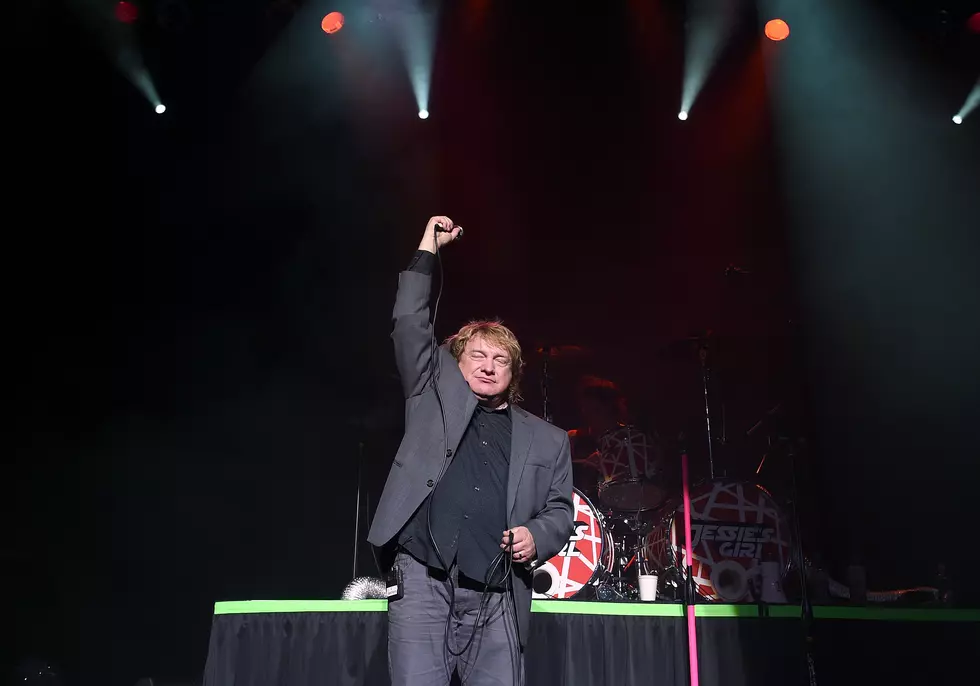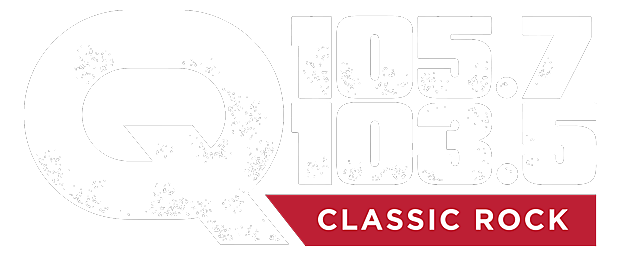
50 of the Most Misunderstood Songs in Rock
Some songs mean exactly what they say, others are open for broader interpretation.
And especially if you're an internationally famous musician, this means a whole lot of people interpreting your work as they see fit. Naturally, it can lead to some incorrect assumptions and downright wild theories.
Often, when a song is presumed to be about a particular topic and turns out not to be, it can be difficult to shake the perception people have adopted. It usually takes the artist themselves coming out to clarify the meaning of a song, to set the record straight once and for all.
We're taking a look at 50 of the Most Misunderstood Songs in Rock — if you think you know the meaning behind these titles, you may want to think again.
1. "A Toute Le Monde," Megadeth
From: Youthanasia (1995)
At one point, Megadeth's "A Toute Le Monde" was banned from MTV as the network deemed it a pro-suicide song. But that was the furthest thing from the truth according to Dave Mustaine. "It was basically about a dream I had where — my mom had died suddenly, and it was very shocking — and in my dream, my mom was able to come back to earth and say one thing only. And that one thing was, 'I love you,'" he explained to Spin in 2023. "And I thought that would be great if I was able when I go to heaven to come back and say one thing to the people who I love – I would want to say, 'I love you.'"
2. "Acquiesce," Oasis
From: The Master Plan (1998)
In the studio recording of Oasis' "Acquiesce," you can hear a conversation between Liam Gallagher, co-producer Owen Morris and rhythm guitarist Bonehead in which Gallagher says he's "sacked" his brother Noel from the band. But that didn't mean the song was about the two siblings. "The song is about friendship in the widest sense," it says in the album's sleeve notes, "and not, as often speculated, about the Gallagher brothers themselves."
3. "Ain't My Bitch," Metallica
From: Load (1996)
Frankly, the misunderstanding regarding Metallica's "Ain't My Bitch" was the responsibility of the listeners, who assumed the title referred to a woman. But that wasn't the case – it was instead a metaphor for a situation being complicated or problematic.
4. "Alive," Pearl Jam
From: Ten (1991)
On the surface, it makes sense that fans would hear the lyrics to Pearl Jam's "Alive" and consider it a song of great resiliency. But for Eddie Vedder, who based at least parts of "Alive" on his own experience learning that the man he believed to be his biological father turned out not to be, it was supposed to read darker. "He's still dealing, he's still growing up. He's still dealing with love, he's still dealing with the death of his father," Vedder said to Rolling Stone in 1993. "All he knows is 'I'm still alive' — those three words, that's totally out of burden." (Four years later, Pearl Jam's "Immortality" was also misinterpreted as being about Kurt Cobain and his death, which Vedder has firmly denied.)
5. "American Girl," Tom Petty and the Heartbreakers
From: Tom Petty and the Heartbreakers (1977)
For a while, there was a rumor going around that Tom Petty's "American Girl" was written about a young woman who committed suicide by jumping off a building at the University of Florida in Gainesville, Petty's hometown. This was unequivocally not true. Decades later, a similar situation occurred. While it was true that 2002's "The Last DJ" was inspired by Jim Ladd, the point was bigger than that and radio was only meant as a metaphor for society's apparent desire to consume as much as possible. "What I find interesting these days is what the audience is willing to accept," Petty said to the Los Angeles Times then. "I often wonder if they even care. I don't want to believe that...But there's a huge celebration of mediocrity in our culture, and I don't remember it to this extent before."
6. "American Woman," The Guess Who
From: American Woman (1970)
Canadian rock band the Guess Who was not trying to make some kind of political statement with "American Woman," as some fans thought. "What was on my mind was that girls in the States seemed to get older quicker than our girls and that made them, well, dangerous," Burton Cummings clarified to the Toronto Star in 2013. "When I said 'American woman, stay away from me,' I really meant 'Canadian woman, I prefer you.' It was all a happy accident."
7. "Big Thing," Duran Duran
From: Big Thing (1988)
Apparently a good number of people had their minds in the gutter when it came to the title track of Duran Duran's Big Thing, thinking it a reference to the size of a particular human body part. But it was meant to be sort of an introductory statement about the album – here's the next big thing! "For me, it is one of the worst lyrics we have ever written," Simon Le Bon later admitted, "so bad in fact, that perhaps it justifies all the criticism that has ever been leveled at us!"
8. "Blood In, Blood Out," Exodus
From: Blood In, Blood Out (2014)
There's quite a few songs out there written about fellow band members, but Exodus' "Blood In, Blood Out" is not one of them. "A lot of people asked if [the song] had anything to do with Rob [Dukes] being replaced in the band, but as convenient as that sounds, the title, the lyrics, they were all there when Rob was recording it," guitarist Gary Holt told Billboard in 2014. "I hate to disappoint them on that one. It wasn't autobiographical."
9. "Bodhisvatta," Steely Dan
From: Countdown to Ecstasy (1973)
In the late '60s, quite a few rock 'n' roll artists turned their attention toward meditation practices, enlightenment and other Eastern rituals. Steely Dan's "Bodhisvatta" was something of a parody of this phenomenon, which most people didn't pick up on. As Donald Fagen put it: "Lure of East, hubris of hippies, a quick fix."
10. "Born in the U.S.A.," Bruce Springsteen
From: Born in the U.S.A. (1984)
There could probably be an entirely separate list for songs that have been assumed to be patriotic and are actually the opposite. Bruce Springsteen's "Born in the U.S.A." is arguably the most famous of these numbers. Sure, the title phrase sounds very country-loving, but listen to the lyrics more closely and you'll hear Springsteen discussing the hardship Vietnam veterans faced when they returned home from war — not exactly fitting for Fourth of July parades and the like. (Other songs in this vein include Neil Young's "Rockin' in the Free World," John Mellencamp's "Pink Houses" and Bob Seger's "American Storm.")
11. "Brass in Pocket," The Pretenders
From: Pretenders (1980)
Chrissie Hynde has pretty much always rejected the idea that she's a feminist leader in rock music, and that applied to "Brass in Pocket," too. "When people say that there's this strong female persona driving the song, it drives me fucking crazy!" she told Classic Rock in 2021. "The 'girl' thing seems to be real important for other people but I'm mystified by it. For me, 'Brass in Pocket' was supposed to be real traditional, because tradition in rock is what turns me on. We want our rock singers to be confident and cocky, and 'Brass in Pocket' was an act, my attempt to write a song that sounded like that. It's actually very tongue-in-cheek – that's why I have that line where I sing: 'I'm winking at you.'"
12. "Candyman," Siouxsie and the Banshees
From: Tinderbox (1986)
When she was nine years old, Siouxsie Sioux was sexually assaulted by a stranger, an incident that went unaddressed by both her parents and police. Subsequently, Sioux grew up keeping her distance from adults. In 1986, she and the Banshees released "Candyman," which many people took to be some kind of drug reference. But it was really about how adults can abuse the trust that children naturally place in them, and what can happen when that trust is violated.
13. "Cloud Nine," The Temptations
From: Cloud Nine (1969)
Like a whole lot of other '60s songs, the Temptations' "Cloud Nine" with its elevated title was assumed to be a song about drugs. "Berry [Gordy] thought that we were singing about getting high," Otis Williams recalled to uDiscover Music in 2023. But that simply wasn't the case: "I know there weren't drug references because [the song's writers] Norman [Whitfield] and Barrett [Strong] didn't do drugs."
14. "Even It Up," Heart
From: Bebe le Strange (1980)
You'd be forgiven for thinking that Heart's "Even It Up" is about a selfish lover who needs to start pulling their weight in a relationship, but the band was thinking more broadly than that. "That song was written in about '79 or '80, and it was definitely a response to being obstructed as women in the rock field," Ann Wilson told Songfacts. "There are so many systemic things that get thrown up in front of you, different glass walls and stuff. We were speaking out against it then."
15. "Every Breath You Take," The Police
From: Synchronicity (1983)
There's a fine line between attentive lover and straight up stalker, as evidenced in the Police's "Every Breath You Take." "I think the song is very, very sinister and ugly and people have actually misinterpreted it as being a gentle little love song, when it's quite the opposite," Sting once explained to BBC Radio 2.
16. "Fortunate Son," Creedence Clearwater Revival
From: Willy and the Poor Boys (1969)
Like Springsteen's "Born in the U.S.A.," Creedence Clearwater Revival's "Fortunate Son" has taken on a life of its own in the decades since its release. You'll often see it cited as an anti-war number, more specifically anti-Vietnam War, but John Fogerty has always maintained that the song is less about military combat and more about class disparities at home in the U.S. When he wrote the song, he was thinking of how sons of prominent political figures were often spared from having to fight in the war, a privilege those in lower classes didn't get to enjoy. (Many people assumed CCR's "Run Through the Jungle" was also an anti-war song, but Fogerty was actually addressing the proliferation of guns in America.)
17. "Good Riddance (Time of Your Life)," Green Day
From: Nimrod (1997)
To Green Day's surprise, 1997's "Good Riddance (Time of Your Life)" became immensely popular at high school proms, graduations and similar rite of passage events with its lyrics about turning points and forks in the road. But this was not at all what Billie Joe Armstrong originally had in mind when he wrote the song. He'd actually penned it as an irritated kiss-off to his girlfriend at the time who had up and moved to Ecuador.
18. "Higher," Creed
From: Human Clay (1999)
No, Creed's "Higher" is not a drug reference and it's also not about some sort of ascension to heaven. Instead, it's about lucid dreaming. "You're physically asleep, but you're awake in your mind," singer Scott Stapp explained to Spin in 2000. By training himself to lucid dream, Stapp was able to stop the recurring nightmares he'd been having, and he wrote "Higher" about his experience doing so.
19. "I Can't Dance," Genesis
From: We Can't Dance (1991)
You can't take Genesis too literally, certainly not when it comes to 1991's "I Can't Dance." "It's not about being unable to dance," Phil Collins explained to Rolling Stone in 2016. "It's about guys that look good but can't string a sentence together. Each verse is a piss-take at the scenario of a jeans commercial. It was good fun, but the audience thought, 'What does he mean that he can't dance?' They didn't see the humor, and it killed the fun."
20. "I Love L.A.," Randy Newman
From: Trouble in Paradise (1983)
Randy Newman's "I Love L.A." is not the straightforward love letter to the city that a lot of people assume it to be. Newman was aiming for a more tongue-in-cheek approach, making fun of the city a bit with some purposefully cynical lyrics. "There's sort of an aggressive ignorance to [the city] that I like," he said to The New York Times in 2021.
21. "I Saved the World Today," Eurythmics
From: Peace (1999)
"It's very ironic," Dave Stewart once told Songfacts of Eurythmics' 1999 song "I Saved the World Today." "Another one of those songs where people go hooray! But it's not saying that, it's saying, if only. It's a very uplifting chorus but the verses are down musically. In the lyric it's all the way through saying, well, there's all these problems and there's a million things to solve, but hey, I saved the world today."
22. "I Will Always Love You," Dolly Parton
From: Jolene (1974)
On the surface, Dolly Parton's "I Will Always Love You" can be viewed as a tender tribute to a lover who's moved on, but Parton actually wrote it with a platonic friend in mind. She penned it about her professional separation from Porter Wagoner, with whom she'd worked for seven years.
23. "In the Air Tonight," Phil Collins
From: Face Value (1981)
"I don't know what this song is about," Phil Collins admitted to BBC World Service. "When I was writing this I was going through a divorce. And the only thing I can say about it is that it's obviously in anger. It's the angry side, or the bitter side of a separation. So what makes it even more comical is when I hear these stories which started many years ago, particularly in America, of someone come up to me and say, 'Did you really see someone drowning?' I said, 'No, wrong.' And then every time I go back to America the story gets Chinese whispers, it gets more and more elaborate. It's so frustrating, 'cause this is one song out of all the songs probably that I've ever written that I really don't know what it's about, you know?"
24. "Killing an Arab," The Cure
From: Boys Don't Cry (1980)
Naturally the title "Killing an Arab" drew a a lot of controversy when the Cure first released it in 1980. But the song itself is based on Albert Camus's French novel The Stranger. "If I knew it before, I would have called it 'Standing on the Beach,'" Robert Smith later said. "It would have avoided many troubles."
25. "Last Train to Clarksville," The Monkees
From: The Monkees (1966)
When one thinks of '60s protest music, the Monkees are probably not the first band to come to mind. The made-for-TV band had to get creative if they wanted to take stances in their writing. Clarksville, Tennessee, it turned out, was near an army base, which made the line "I don't know if I'm ever coming home" take on a different meaning. "Considering that it was a Monkees song and the first one, I was always surprised that the record company even released it unless it just went right over their head," Micky Dolenz told Rolling Stone in 2016.
26. "Laura," Billy Joel
From: The Nylon Curtain (1982)
At the time of its release in the early '80s, Billy Joel stated that "Laura" was not written about any ex partner of his, though that certainly didn't stop listeners from speculating exactly that. It wasn't until many years later that Joel finally began to open up about the song, telling Howard Stern in 2014 that he wrote it about "somebody in my family who's a pain in the ass." Later he confirmed that it was about his own mother.
27. "Less Than Zero," Elvis Costello
From: My Aim Is True (1977)
When Elvis Costello arrived in America to perform for the first time, he found that his audience didn't have a clue what "Less Than Zero" was about. That made sense, given that Costello had written it about the former British Union of Fascists leader Oswald Mosley. "I'm not sure if anyone in Cleveland had ever heard of Oswald Mosley or gave a damn about him when we played 'Less Than Zero' that night," he later wrote in his autobiography. "It was just some rock and roll music with a fashionable-sounding title." (Costello's "This Year's Girl" was also misunderstood as an attack on women, but was actually a response to the Rolling Stones' "Stupid Girl.")
28. "Let Me Roll It," Wings
From: Band on the Run (1973)
This is the only song on this list that was, in fact, a drug song, but most people didn't catch on to that fact. Many listeners thought it to be a sort of tribute or response to John Lennon's music, but Paul McCartney wasn't thinking of that. "I think it’s fair to say that to 'roll it' has to do with rolling a joint," he said in The Lyrics: 1956 to the Present. "I don't think that's going to come as a surprise to anyone. There was a lot of post-smoking in an audience, back in the day when smoking was still allowed in venues."
29. "Like a Stone," Audioslave
From: Audioslave (2002)
Audioslave bassist Tim Commerford assumed "Like a Stone" to be a song about love and romance when he first heard it. He was wrong. "The short version is just some guy sitting in a hotel room contemplating death and where you go and what it means and all the possibilities of that," Chris Cornell explained in an interview. "Then coming up with an image that he liked. Like going with the philosophy of, maybe when you die and you've been good enough in your life then you get to go somewhere that you remember that was really cool."
30. "Lucy in the Sky With Diamonds," The Beatles
From: Sgt. Pepper's Lonely Hearts Club Band (1967)
The members of the Beatles may have been experimenting with drugs in the latter half of the '60s, but that didn't mean all their trippy songs were about their experiences doing so. "Lucy in the Sky With Diamonds" was rumored to be about LSD, which conveniently had the same letters as the song, but it actually stemmed from an entirely innocent event. One day John Lennon's three-year-old son Julian gave him a drawing he'd made in school with that title, prompting Lennon to write a song about it. (And if you don't believe Lennon, Ringo Starr witnessed the interaction himself.)
31. "Maneater," Hall and Oates
From: H2O (1982)
According to John Oates, "Maneater" isn't about a person at all, but a place. "'Maneater' is about NYC in the '80s," he told Something Else! in 2014. "It's about greed, avarice and spoiled riches. But we have it in the setting of a girl because it's more relatable. It's something that people can understand. That's what we do all of the time." (The duo also did this with "I Can't Go For That (No Can Do)," which was written about the music business.)
32. "Mirror in the Bathroom," The English Beat
From: I Just Can't Stop It (1980)
When Dave Wakeling wrote and sang about a mirror in 1980's "Mirror in the Bathroom," he meant the kind that you look at yourself in, but a significant amount of people did not pick up on that, assuming instead that it was about cocaine usage. "In America in the early '80s, everybody gave me knowing winks and said, 'Oh, I know what that one's about, then, Dave,'" he recalled to Songfacts. "And it wasn't that mirror in the bathroom at all, it was the one on the wall, and not the one on your knee."
33. "One," U2
From: Achtung Baby (1991)
Many fans thought of U2's "One" as a lovely tribute to togetherness, but Bono was thinking much more cynically than that. "It is a song about coming together, but it's not the old hippie idea of 'Let's all live together.' It is, in fact, the opposite," he told the Los Angeles Times in 1993. "It's saying, we are one, but we're not the same. It's not saying we even want to get along, but that we have to get along together in this world if it is to survive. It's a reminder that we have no choice."
34. "Perfect Day," Lou Reed
From: Transformer (1972)
Lou Reed wrote so many songs about drugs that when he wrote songs that were not about drugs, people tended not to believe him. Such was the case with "Perfect Day," which many presumed to be another ode to addiction. "No, that's not true," he said in 2000. "I don't object to that, particularly...whatever you think is perfect. But this guy's vision of a perfect day was the girl, sangria in the park, and then you go home; a perfect day, real simple. I meant just what I said."
35. "Puff, the Magic Dragon," Peter, Paul and Mary
From: Moving (1963)
Sometimes a song is just as innocent as its title sounds. Peter, Paul and Mary's "Puff, the Magic Dragon" was not a reference to the smoking of drugs, but about a pet dragon and his playmate Jackie Paper. (It was inspired by a 1959 poem by Leonard Lipton.)
36. "Rainy Day Women #12 and #35," Bob Dylan
From: Blonde on Blonde (1966)
Attempting to discern what exactly a Bob Dylan song is about is something of a fool's errand, but if there's one thing he wanted to make clear about 1966's "Rainy Day Women #12 and #35," with its "everybody must get stoned" refrain, it's that it's not a drug song. "I never have and never will write a drug song," he said during one of his 1966 concerts.
37. "Reasons," Earth, Wind and Fire
From: That's the Way of the World (1975)
Earth, Wind & Fire's "Reasons" has somehow found its way onto an awful lot of wedding playlists, which has come as a surprise to the band. "It's not talking about real love," singer Philip Bailey emphasized in 2015. "It's talking about a one-night stand."
38. "Ronnie, Talk to Russia," Prince
From: Controversy (1981)
You probably don't think of Prince as having been much of a politcal songwriter, so its understandable his intended message in "Ronnie, Talk to Russia" was largely overlooked. Prince generally kept his opinion on politcal matters, if he had them, private, but in 1981's "Ronnie, Talk to Russia" he was directly urging President Ronald Reagan to maintain peace with America's enemy in the Cold War.
39. "Room for the Life," Kate Bush
From: The Kick Inside (1978)
Similar to Chrissie Hynde, Kate Bush sometimes found that fans placed more of a feminist emphasis on her music than she herself had ever intended to, including with 1978's "Room for the Life." "People thought that song was feminist which disappointed me," she told Sounds in 1980. "It was actually saying we should go a bit easier on men because we are the ones with survival inside us, we carry the next generation, we have the will to keep going, we keep bouncing back. I don't know it that's anti-liberationist but I wouldn't say femininity was very strong in my songs."
40. "Soak Up the Sun," Sheryl Crow
From: C'mon C'mon (2002)
The state of the world following the September 11 attacks was, in a word, dismal, and Sheryl Crow was paying close attention to how privilege and disparity were playing a part when she penned "Soak Up the Sun," which many listeners took for just a simple, happy-go-lucky track. "We already knew what was happening in the environment, and yet everything that you saw on MTV was like, bling and Rolls Royces and girls, and it just was such a weird dichotomy to be like, 'The planet's dying, yet we're really going to concentrate on how much wealth we can accrue,'" she explained to People in 2023. "That's what inspired the song: looking over at MTV like, 'Whoa, what is happening here?'"
41. "Summer of '69," Bryan Adams
From: Reckless (1984)
This is actually a rare instance in which you need to put your mind in the gutter to understand the meaning behind a song. Contrary to popular belief, Bryan Adams' "Summer of '69" was not meant to be a nostalgic look back at his glory days, "but actually," Adams said in 2008, "it's more about making love in the summertime. It's using '69 as a sexual reference."
42. "The KKK Took My Baby Away," Ramones
From: Pleasant Dreams (1981)
This is one of those songs where even the members of the band seem to have not had the same understanding of its meaning, so it's understandable that listeners wouldn't either. Ramones manager Monte Melenick thought it was Joey Ramone writing about Johnny Ramone stealing his girlfriend from him. But Micky Leigh has said that's not accurate and was instead written about the time Joey dated an African American woman, which his parents disapproved of, and how, when they split up, he told Leigh that "the KKK took my baby away."
43. "The One I Love," R.E.M.
From: Document (1987)
Sure, the title and very first line of this 1987 R.E.M. song sounds sweet, but all you really need to do is listen for just a few more seconds to realize things aren't so rosy. "A simple prop to occupy my time," Michael Stipe sings. "I've always left myself pretty open to interpretation," Stipe said to Rolling Stone at the time. "It's probably better that they just think it's a love song at this point."
44. "This Land Is Your Land," Woody Guthrie
From: Released in 1945
Woody Guthrie's "This Land Is Your Land" often makes appearances at things like political rallies and other nationalistic type events, but the version that's usually played only includes the more idealistic verses. There are actually two more verses of lyrics that are more critical of America and express Guthrie's frustration at what he perceived as injustice that ran rampant through the country: "In the shadow of the steeple I saw my people / By the relief office I seen my people / As they stood there hungry, I stood there asking / Is this land made for you and me?"
45. "Today," The Smashing Pumpkins
From: Siamese Dream (1993)
"Today is the greatest day I've ever known," Billy Corgan says at the top of "Today," leading listeners to believe they're hearing a song about, well, a great day. But Corgan was actually thinking along much darker lines. "I was really suicidal," he told Rolling Stone in 1993. "I just thought it was funny to write a song that said today is the greatest day of your life because it can't get any worse."
46. "Total Eclipse of the Heart," Bonnie Tyler
From: Faster Than the Speed of Night (1983)
Jim Steinman had a really specific goal in his head when he penned "Total Eclipse of the Heart:" write a vampire love song. "Its original title was 'Vampires in Love' because I was working on a musical of Nosferatu, the other great vampire story," he recalled to Playbill in 2002. "If anyone listens to the lyrics, they're really like vampire lines. It's all about the darkness, the power of darkness and love's place in dark. And so I figured 'Who's ever going to know; it's Vienna!' And then it was just hard to take it out."
47. "Wavelength," Van Morrison
From: Wavelength (1978)
A number of people assumed Van Morrison's "Wavelength" to be about either his travels in America or the glories of radio, or a mixture of both. But when Morrison sang "I heard the voice of America calling on my wavelength" he meant it in a very literal sense. Voice of America was (and still is) a U.S.-run radio program broadcast in dozens of languages around the world. "It's actually about Europe, because that's where the station was," Morrison explained of his song to Melody Maker in 1979. "It came out of Frankfurt, and the first time I ever heard Ray Charles was on the Voice of America. We tried to get a tape recording of the Voice of America to put on the front of that track, but it didn't work out. I didn't get it by the time the album was due to be mixed. But I think it would have made it a lot clearer if the signature thing was on the front of it. It doesn't click for a lot of people."
48. "We Gotta Get You a Woman," Todd Rundgren
From: Runt (1970)
Like other songs on this list, Todd Rundgren's "We Gotta Get You a Woman" caught flack for some risky lyrics about women, in this case "they may be stupid but they sure are fun." Rundgren would later explain that he meant the "stupid little characteristics that people have — funny little quirks and stuff like that."
49. "Whip It," Devo
From: Freedom of Choice (1980)
Devo purposefully made the lyrics to "Whip It" nonsensical and sort of silly, but of course, a lot of listeners took it to be more sexual in nature. "All the DJs and people hearing it assumed it was a song about beating off or sado-masochism, so we let them think that," Jerry Casale told Songfacts. "We didn't want to ruin it and tell them the truth, because they just wouldn't get off on the truth."
50. "White Riot," The Clash
From: The Clash (`1977)
There were a lot of listeners who thought the Clash's "White Riot" was a loud and proud call for a race war, but this could not have been further from the truth. It was instead written about how, in the eyes of Joe Strummer, impoverished white youth would need to fight back against the police and other powerful authorities like their black counterparts had been doing if they wanted to stand up for themselves. "The only thing we're saying about the blacks is that they've got their problems and they're prepared to deal with them," he told NME. "But white men, they just ain't prepared to deal with them — everything's too cosy. They've got stereos, drugs, hi-fis, cars. The poor blacks and the poor whites are in the same boat."
Repeat Records: 55 Albums With the Same Name
Gallery Credit: Allison Rapp
More From Q 105.7





